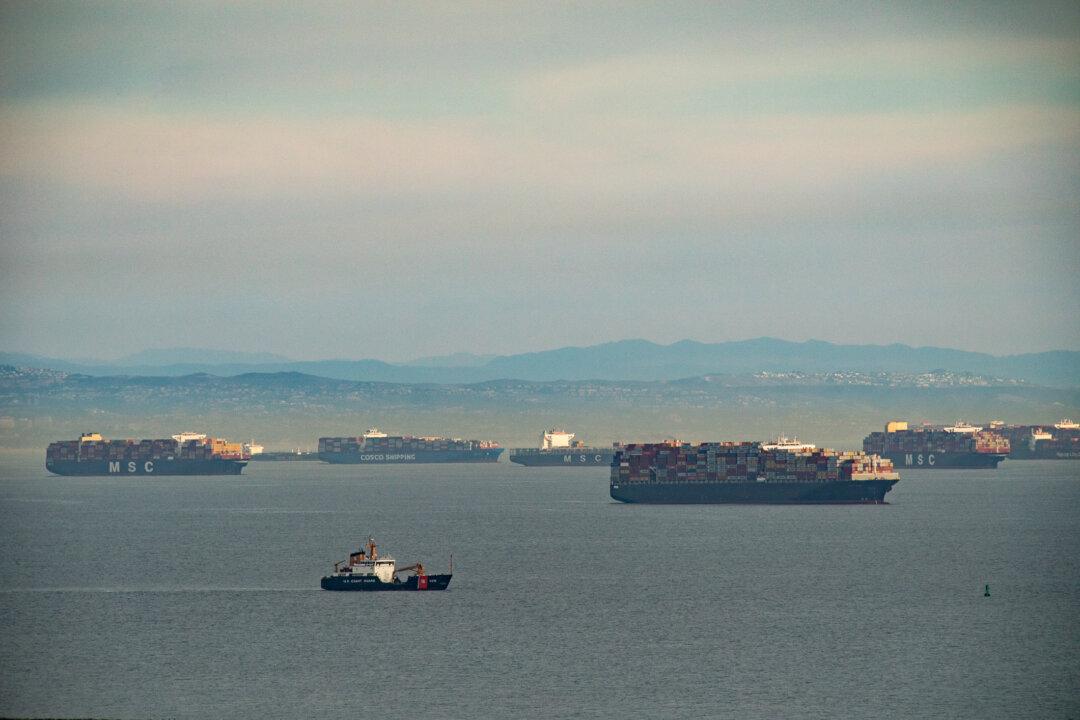LOS ANGELES—The two busiest container ports in the United States are experiencing their largest backlogs of ships on record, with about 60 vessels waiting to enter the ports Tuesday.
Port of Los Angeles spokesperson Phillip Sanfield said the backlog can be attributed to an unprecedented buying surge that is straining the supply chain.





